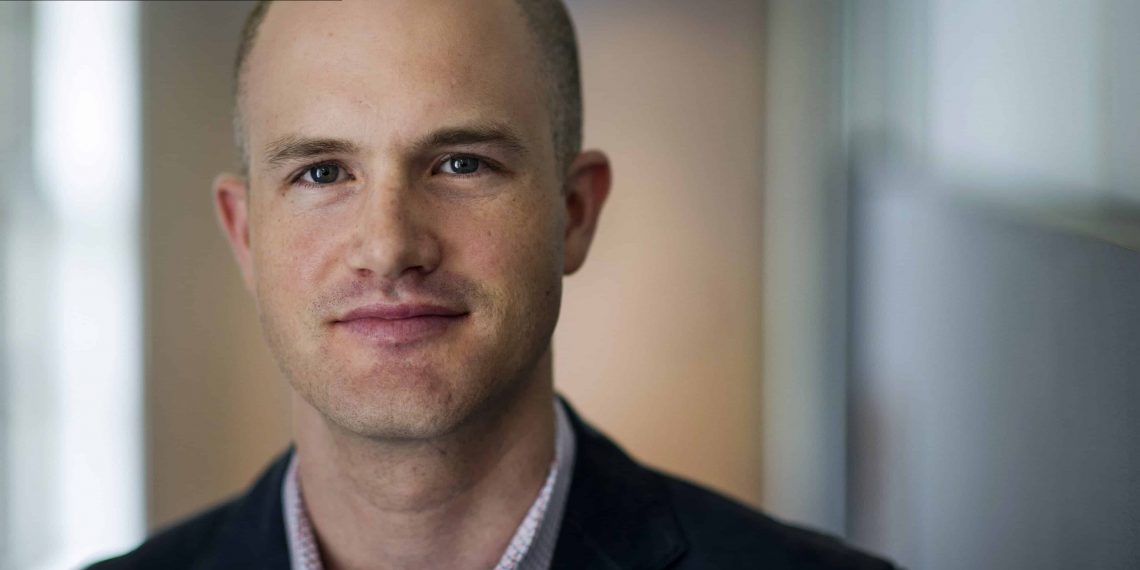Armstrong Backs Bitcoin as Sole Choice for U.S. Crypto Reserve Amid Industry Debate
03.03.2025 18:00 1 min. read Alexander Zdravkov
Coinbase CEO Brian Armstrong believes that if the U.S. were to establish a crypto reserve, Bitcoin should be its primary asset, likening it to a modern successor to gold.
While he acknowledged that a broader basket of cryptocurrencies could be an alternative, he argued that Bitcoin alone offers the clearest and most straightforward approach.
His remarks were a response to Donald Trump’s recent announcement of a proposed Crypto Strategic Reserve, which would include Bitcoin, Ethereum, Solana, XRP, and Cardano. Trump stated that his crypto working group had been instructed to move forward with the initiative, though details remain unclear.
Arthur Hayes, co-founder of BitMEX, dismissed the announcement as lacking substance, questioning how the U.S. government would fund such a reserve without congressional approval or a significant rise in gold prices.
Meanwhile, Binance founder Changpeng Zhao (CZ) took a more optimistic stance, urging the community to focus on long-term industry growth and suggesting that additional cryptocurrencies could be added over time.
The debate over whether the U.S. should adopt a Bitcoin-only strategy or diversify its crypto holdings remains unresolved. Further policy insights are expected during the upcoming White House Crypto Summit on March 7.
-
1
Robert Kiyosaki Buys More Bitcoin, Says He’d Rather Be a ‘Sucker Than a Loser’
02.07.2025 22:00 1 min. read -
2
This Week in Crypto: Whale Accumulation, Ethereum Signals, and a Sentiment Shake-Up
05.07.2025 21:00 3 min. read -
3
BlackRock’s IBIT Bitcoin ETF Surpasses 700,000 BTC in Record Time
08.07.2025 19:00 2 min. read -
4
Veteran Trader Peter Brandt Shares Simple Wealth Strategy with Bitcoin at Its Core
30.06.2025 15:00 2 min. read -
5
Bitcoin Tops Crypto Social Buzz as $110,000 Milestone Fuels Market Debate
04.07.2025 8:15 3 min. read
Peter Thiel-Backed Crypto Exchange Files for IPO
Cryptocurrency exchange Bullish, backed by billionaire investor Peter Thiel, has officially filed for an initial public offering (IPO), marking a major step toward entering the public markets.
Tether Plans U.S.-Issued Stablecoin After Trump Signs GENIUS Act
With President Trump officially signing the GENIUS Act into law, the regulatory landscape for stablecoins in the U.S. has entered a new phase—prompting major reactions from the industry’s top players.
Block to Join S&P 500 Following Chevron–Hess Merger Completion
Block Inc. (NYSE: XYZ), the fintech powerhouse behind Cash App and Square, will officially join the prestigious S&P 500 index next week.
Bitcoin ETFs Attract Over $2 billion in Weekly Inflows: What’s Driving the Gains?
Bitcoin ETFs in the U.S. recorded $2.39 billion in net inflows over the past week, according to data from Farside Investors, marking one of the strongest capital surges since their launch.
-
1
Robert Kiyosaki Buys More Bitcoin, Says He’d Rather Be a ‘Sucker Than a Loser’
02.07.2025 22:00 1 min. read -
2
This Week in Crypto: Whale Accumulation, Ethereum Signals, and a Sentiment Shake-Up
05.07.2025 21:00 3 min. read -
3
BlackRock’s IBIT Bitcoin ETF Surpasses 700,000 BTC in Record Time
08.07.2025 19:00 2 min. read -
4
Veteran Trader Peter Brandt Shares Simple Wealth Strategy with Bitcoin at Its Core
30.06.2025 15:00 2 min. read -
5
Bitcoin Tops Crypto Social Buzz as $110,000 Milestone Fuels Market Debate
04.07.2025 8:15 3 min. read


